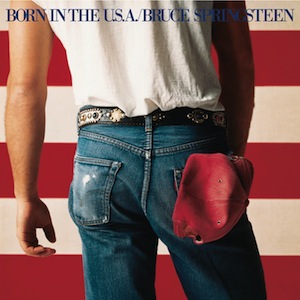a great post by @DelRey summing up a transformative year in retail. he highlights a number of powerful trends reshaping the industry, and I thought I'd add a few additional things we’re seeing. https://twitter.com/DelRey/status/1343992504610394112
as @DelRey notes, consumer comfort buying online is rapidly expanding to categories once thought to be firmly brick & mortar bound. we’re now seeing consumer comfort buying groceries (Krogers top 10 ecommerce site in US!), auto (Carvana) and real estate (Opendoor) online.
before eCom, Gatekeepers controlled access to info (mass media ads, magazine editors, dept store buyers) and access to products (malls + dept stores were the only place for most of us to find products). this enabled retail gatekeepers to effectively dictate consumer demand.
with control over info + access, brands spend decades expanding footprints (often via serving department stores) and driving down product costs (Asian production markets opening in 2nd half of 20th century enabled massive seasonal inventory bets that reduced COGs).
and what a model it was! mass producing products with low COGs, plowing them into near-monopolized distribution channels, and using Madison Avenue to generate top down demand was insanely lucrative (5 of the richest 10 people in the world made their fortunes in retail).
yet it breaks down when brands can't dictate demand, and that’s exactly what’s happening (see @profgalloway dispersion theory). social media lets consumers bypass gatekeepers for inspiration and w/ eCom I can now buy nearly any product from any brand in the world with a click.
all of a sudden, many aspects of the old retail operating model are no longer lucrative profit drivers, but anchors wrapped around brands' ankles, slowly drowning them.
18-24 mo. product lead times initially adopted to enable Asian mass production and to serve wholesale buyers today make it impossible for brands to react to empowered consumers and their fast evolving tastes.
brands outsourced direct relationships with consumers to dept stores (who took on the messy work of stores and “selling”). as a result, brands’ product teams have shockingly little info about who’s buying their products
(related crazy fact: when someone in the retail industry uses the word “customer” - they’re actually referring to buyers at department stores, not you and me!)
the waste generated by this old model still being applied in today's new consumer reality is staggering. of $1 tn in retail inventory brought to market annually, only 60% sells at full price ( @BoF). and 26 billion lbs. of unwanted clothing end up in U.S. landfills each year.
why does any of this matter? it’s just clothes and shoes right? I’d argue it’s a lot more important than that. while retail isn’t curing cancer, in the US alone 20 million people rely on retail jobs to put food on their tables (2nd largest private sector employer).
And ideals represented by brands have the power to connect - when @LEVIS were banned in Soviet Union, a blackmarket flourished to feed demand for 501’s, prompting Régis Debray to observe “there is more power in rock music and blue jeans than in the entire Red Army.”
and the retail industry reversing its wasteful ways will play a major role in combating the climate crisis - @McKforSociety estimates that today the retail industry generates for 4% of global greenhouse emissions (and today it's only getting worse)
luckily the eCom channel shift is forcing a fundamental restructure of the retail system. upstarts like @Allbirds, @rothys Faherty + @Gymshark are taking share by having consumer responsiveness built into their DNA (shorter lead times, tightly connected mktg + product functions)
meanwhile, the largest brands in the world are doing everything in their power to re-orient their entire organizations toward being more responsive to today’s empowered consumer (shorter product lead times, direct relationships with consumers, streamlining wholesale operations).
in 5-10 years, the retail landscape will look very different. the best brands will have navigated the transition to consumer-led operating models, consumer-led upstarts will continue to take share, and many household names who couldn’t make the shift will be dead.
@MakerSights we’re excited to help usher in this new era of consumer-led retail, w/ the belief that a less wasteful retail industry can create great jobs, curtail emissions, and allow people across the globe to self express while feeling more connected to one another. [end rant]

 Read on Twitter
Read on Twitter


